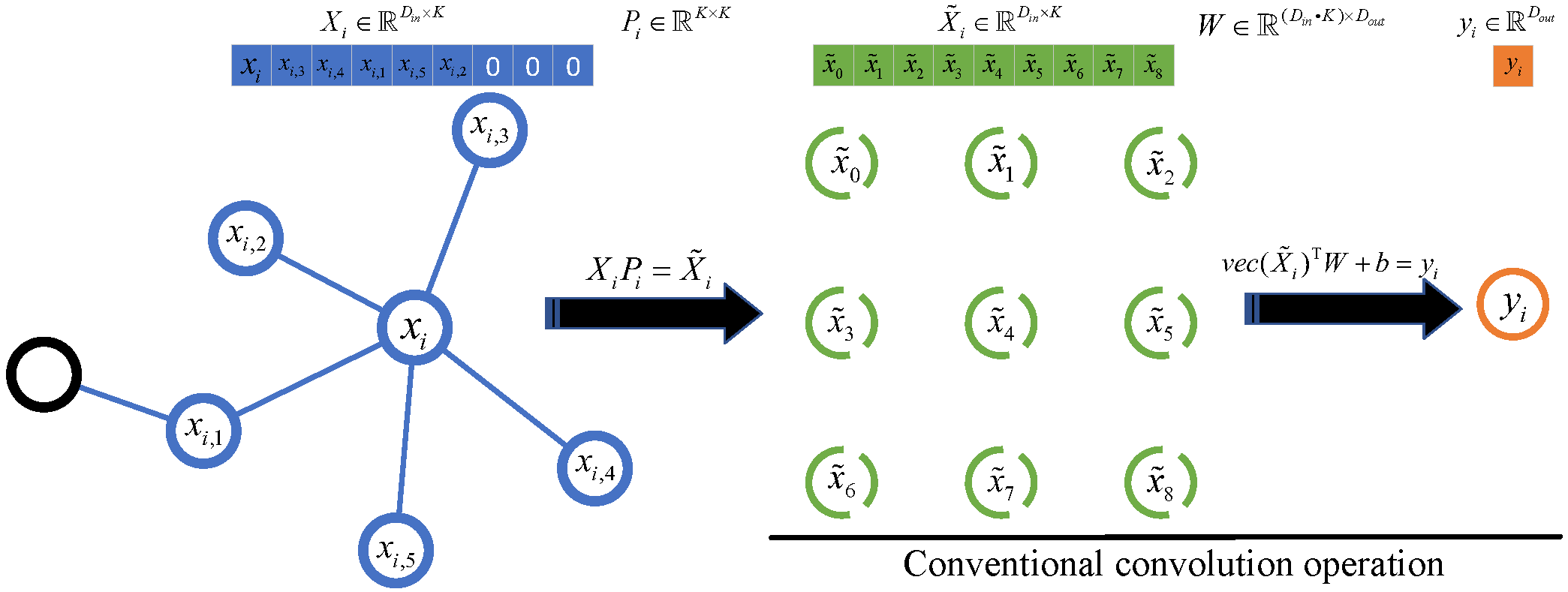 This repository is the official implementation of my paper: "Learning Local Neighboring Structure for Robust 3D Shape Representation"
This repository is the official implementation of my paper: "Learning Local Neighboring Structure for Robust 3D Shape Representation"
Mesh is a powerful data structure for 3D shapes. Representation learning for 3D meshes is important in many computer vision and graphics applications. The recent success of convolutional neural networks (CNNs) for structured data (e.g., images) suggests the value of adapting insight from CNN for 3D shapes. However, 3D shape data are irregular since each node's neighbors are unordered. Various graph neural networks for 3D shapes have been developed with isotropic filters or predefined local coordinate systems to overcome the node inconsistency on graphs. However, isotropic filters or predefined local coordinate systems limit the representation power. In this paper, we propose a local structure-aware anisotropic convolutional operation (LSA-Conv) that learns adaptive weighting matrices for each node according to the local neighboring structure and performs shared anisotropic filters. In fact, the learnable weighting matrix is similar to the attention matrix in random synthesizer -- a new Transformer model for natural language processing (NLP). Comprehensive experiments demonstrate that our model produces significant improvement in 3D shape reconstruction compared to state-of-the-art methods.
This code was written in Pytorch 1.4. We use tensorboardX for the visualisation of the training metrics. We recommend setting up a virtual environment using Miniconda. To install Pytorch in a conda environment, simply run
$ conda install pytorch torchvision -c pytorch
Then the rest of the requirements can be installed with
$ pip install -r requirements.txt
For the mesh decimation code we use a function from the COMA repository (the files mesh_sampling.py and shape_data.py - previously facemesh.py - were taken from the COMA repo and adapted to our needs). In order to decimate your template mesh, you will need the MPI-Mesh package (a mesh library similar to Trimesh or Open3D).
The following is the organization of the dataset directories expected by the code:
- data root_dir/
- dataset name/ (eg DFAUST)
- template
- template.obj
- downsample_method/
- downsampling_matrices.pkl (created by the code the first time you run it)
- preprocessed/
- sliced
- train.npy (number_meshes, number_vertices, 3) (no Faces because they all share topology)
- test.npy
- points_train/ (created by data_generation.py)
- points_val/ (created by data_generation.py)
- points_test/ (created by data_generation.py)
- paths_train.npy (created by data_generation.py)
- paths_val.npy (created by data_generation.py)
- paths_test.npy (created by data_generation.py)
- sliced
- template
- dataset name/ (eg DFAUST)
In order to use a pytorch dataloader for training and testing, we split the data into seperate files by:
$ python data_generation.py --root_dir=/path/to/data_root_dir --dataset=DFAUST --num_valid=100
args['mode'] = 'train' or 'test'
python pai3DMM.py
- The code has compatibility with both mpi-mesh and trimesh packages (it can be chosen by setting the meshpackage variable pai3DMM.py).
The structure of this codebase is borrowed from Neural3DMM.
Please consider citing our work if you find it useful:
@article{GaoAAAI21,
title={Learning Local Neighboring Structure for Robust {3D} Shape Representation},
volume={35},
number={2},
journal={Proceedings of the AAAI Conference on Artificial Intelligence (AAAI)},
author={Gao, Zhongpai and Yan, Junchi and Zhai, Guangtao and Zhang, Juyong and Yang, Yiyan and Yang, Xiaokang}, year={2021},
month={May},
pages={1397-1405}}

